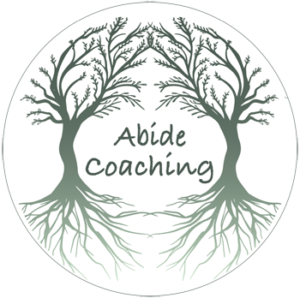FAQ (Frequently Asked Questions)
Get Your Questions Answered Here
A discovery session is a free one-to-one chat where we can get to know each other to determine if we would be a good fit. You never know what will come up in coaching, and you should be comfortable with who is coaching you.
The client portal I use generates the form you fill out. The portal allows for the automation of sending emails and scheduling discovery sessions. Plus, it stores the information so I can follow up personally if needed. If we don’t work together, I will delete your information. I don’t sell your data.
No is the short answer. My clients’ common thread is that they feel stuck or overwhelmed in some area (or more) of life and want to find a way forward.
People who are neurodiverse need coaches who understand neurodiversities. Applying a proper lens to coaching sessions means I appreciate your experiences, reflect on what you may not see, and can support you in becoming more self-aware.
I specialize in coaching individuals and small groups who are neurodiverse, including those with ADHD, Autism, AuDHD, or other neurodiversities. I also coach adult adoptees and parents of children with neurodiversities or disabilities. All my coaching services can integrate a focus on the Christian faith, if that aligns with your values. You do not need a formal diagnosis to get started, if you are unsure where you might fit best we can figure it out together in a scheduled discovery session.
This question is a hard one to answer. Each client comes to coaching with their own strengths, challenges, goals, and dreams. During our first three sessions together, we will come up with an overarching coaching goal. For most clients, meeting that goal means we had a successful coaching journey together.
Everyone is different. Coaching is a process. Changes will not happen overnight. I require a three-month commitment for individual coaching. Most of my clients coach for about a year. Most groups are twelve weeks, but many clients continue with individual coaching.
The most significant difference between group coaching and individual coaching is that group members decide on session topics together in advance, while individuals decide before each session.
This question is deeply personal and is best discussed and decided during a discovery session.
I do whole person coaching. We are whole people with many parts, so I don’t limit what part I will coach on. I use all of my training and intuition to coach the person who is in front of me inside a model of awareness, action, and accomplishment to help people create a life that fits them. Each client has a unique coaching partnership with me.
Coaching is a partnership. For individual coaching, your part of the partnership is to be as open and honest with yourself and me as possible. Also, to have a topic for sessions (I give you some guidance), to fill out coaching prep and wrap-up forms. My part of the partnership is to get to know you as well as I can (I do this in the first three sessions where topics are coach-driven), listen, reflect your statements, educate where needed, and be curious about you. For groups, your part is participating, listening to, and supporting other members.
Individual sessions cost $125 per 50 minute session. Group sessions are $80 per person per 90 minute session. I invoice at the end of the month for the following month’s sessions. I have limited spaces for sliding-scale clients.
The field of coaching is not regulated in any state. Anyone can decide to be a coach, so asking about training is essential. I first trained with Coach Approach Training and then more training with ADD Coach Academy. In addition, I have read loads of books, been to conferences, attended webinars, and completed training for CBT coach training. I am currently taking a Comprehensive Interpersonal Neurobiology Course with the Mindsight Institute. If you are interested, I can provide a list or more details.
As a coach, I must stay in my lane. There is some overlap, but not as much as some may think. Therapists are trying to answer “why” questions: Why do I hurt? Why do I behave this way? Etc. It is critical work for people who have past trauma, addictions, mood disorders, and other mental healing that they need to do. Therapists deal with the past, present, and future, but their focus is on the past. Therapy is more directive than coaching.
Coaches are trying to support you in answering who questions: Who am I? Who am I becoming? Coaches help you with behavioral and goal-oriented actions—some would say more practical daily actions. We deal with the present and the future. Coaches invite you to explore what options might do for you but don’t direct you on choices.
Therapists and coaches can make good partners to support you in your goals. Therapists do healing work, and coaches help support future goals.
Yes and no, ADHD is currently the most common term used to describe the way your brain wiring. But many don’t like the term because the last D in ADHD is disorder. The term pathologies people to natural and need variations for the human genome. I prefer the term VAST (Variable Attention Stimulus Trait). It more accurately describes the brain wiring. I hope the term catches on. For more information, click here.
